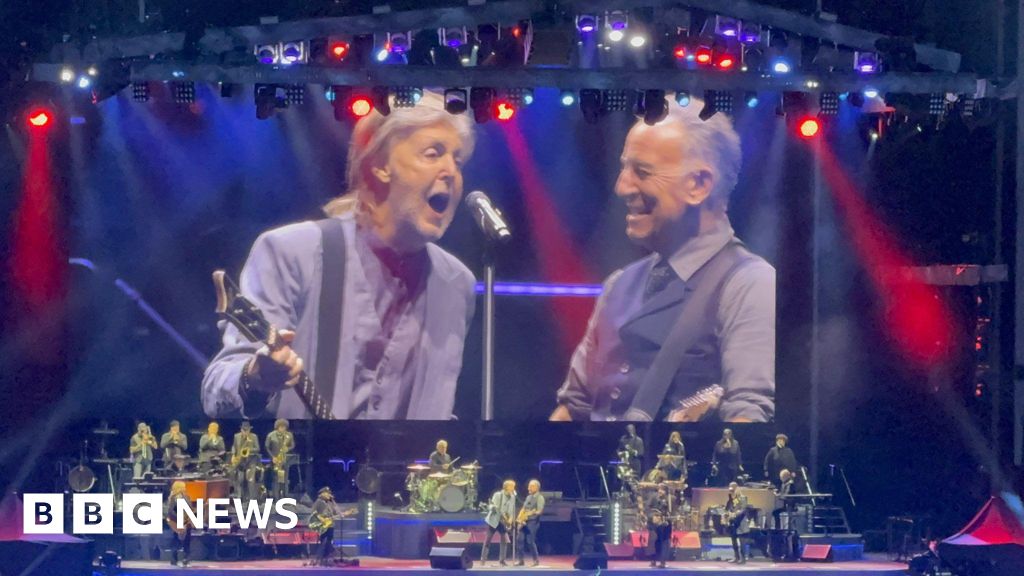ARTICLE AD BOX
By Carolyn Atkinson
Front Row, BBC Radio 4
 Image source, Getty Images
Image source, Getty Images
Many disabled people report inconsistencies in the prices and policies for concessionary tickets
There are huge inconsistencies in the availability and price of concessionary and companion tickets for people who need a personal assistant or carer to support them, many disabled people say.
It comes after news a free national Arts Access Card for disabled people to use at theatres, concerts and festivals is being delayed by two years.
Arts Council England (ACE), which is responsible for creating the card together with the BFI, told BBC Radio 4's Front Row that pilots will not be up and running until early 2024.
Andrew Miller, until recently the government's first disability champion for arts and culture, championed the idea of the card after seeing how a similar scheme, Hynt, worked in Wales.
He told Front Row: "One of the principle reasons for my advocating a national arts access scheme was the lack of any consistency in venues' approach to companion tickets and disabled access.
"As I've experienced, through a lifetime of event attendance as a wheelchair user, buying tickets for 40 years, it's the Wild West out there for disabled consumers.
"There's no consistency between how companion tickets are priced. Some make them half price and the disabled person goes full price, others you get a free companion and the disabled person pays a reduced rate."
The national Arts Access Card had been due to launch in March 2022, according to the government's previously-published National Disability Strategy. The High Court later ruled that strategy unlawful due to inadequate consultation with disabled people - the government has applied for permission to appeal - but the card is still being rolled out independently.
Image source, Getty Images
Image caption,During the course of the research, a number of theatres agreed their websites were confusing
Therese Heath, an arts lover and university arts lecturer, agrees that policies and prices vary from venue to venue. She says it's not fair if a disabled person who needs a companion to attend, ends up paying more.
"It's discriminatory to expect someone to pay double to do something that a non-disabled person does not have to pay double for," she said.
"Sometimes events I've been to will say that there is a PA [personal assistant] scheme, but it can be very difficult to get hold of anyone. At one event I went to, the so-called access helpline was also their ticketing helpline so it was completely rammed and you couldn't get through to anybody."
Recently she wanted to buy tickets for a festival, but said she was surprised to find there was no information at all.
"They didn't have a shred of access information on their website," she recalled. "I was looking for whether they offered PA tickets. I was looking for information as to whether I could get my wheelchair onto the site, whether there were disabled toilets. And unfortunately at that point there was absolutely nothing on their website whatsoever."
The Equality Act applies to any business that provides goods, facilities or services to members of the public including theatres, cinemas, music venues, comedy clubs and festivals.
The Equality and Human Rights Commission (EHRC) has published guidance on responsibilities that entertainment venues have towards their customers,
"Reasonable adjustments are not just about changes to physical features or the addition of auxiliary aids such as a hearing loop, although these can be important to some disabled people," it says.
"Consider providing information (such as programmes and publicity material) in alternative formats and offering an additional ticket for free to a disabled person who needs to bring an assistant."
Image source, Andrew Miller
Image caption,Andrew Miller described the market as a "Wild West for disabled consumers"
But research by Front Row revealed that doesn't always happen.
Stephanie Sirr CEO of the Nottingham Playhouse and co-president of UK Theatre confirmed the "big 12" subsidised theatres all offer free companion tickets, as do many other UK Theatre members.
Hackney Empire and Belgrade Coventry offer disabled concessions plus a free carer ticket for those who need one.
The Tron in Glasgow no longer does concessions, instead offering three price options to choose from. No-one has to prove eligibility for any concession. A companion ticket is free.
But the Mayflower Theatre in Southampton confirmed they charge half price for a companion ticket.
During the course of the research, a number of theatres agreed their websites were confusing.
The Bristol Old Vic has now updated its site making clear free companion tickets are not only available for people with "restricted mobility", but also those who are hearing or visually impaired or neuro-divergent.
The Mercury in Colchester, the Birmingham Rep and the Leeds Playhouse all said if people join their free access schemes to book tickets it overrides links which wrongly appear to charge for companion seats. The Mercury added that barriers to the arts aren't always to do with price, and not everyone wants the free seat.
The Birmingham Rep said being on the access list means they can be sure customers get the right seat for them, for example the end of a row, near the loos, or the best position to read the subtitled captions.
The Leeds Playhouse said they are currently updating their website but that disabled people can book tickets online, in person or over the phone.
All venues stress they work hard to make sure the companion seats are protected for those who really need them, and say abuse won't be tolerated.
Some require proof of eligibility, like the Theatre Royal in Newcastle upon Tyne, where recipients must be in receipt of disability benefits PIP, DLA, or Attendance Allowance, or a Certificate of Vision Impairment (CVI ).
As well as the Hynt card in Wales, Nimbus Disability (previously known as CredAbility) operate the Access Card, which is already accepted by companies including Ticketmaster, Merlin theme parks, the O2 Academies, SSE arenas, Delfont Mackintosh and Ambassador Group Theatres (ATG).
Image source, Nimbus Disability
Image caption,Nimbus Disability operate the Access Card, which is accepted by many events companies (mock-up pictured)
Trained experts have assessed 60,000 members so far, deciding what reasonable adjustments an individual needs. It is noted on the card and then universally accepted.
From this week, ATG is rolling out online booking for all access tickets. Its access and safeguarding lead, Cate Gordon, says all 37 venues will be included.
"By registering with Nimbus's Access Card, customers will be able to log on to our website and book their own accessible seats, and also an essential companion ticket if required… at the time of day that you want to, just in the same way that any non-disabled person could," she said.
Miller, who is now a trustee at Bafta and the Royal Shakespeare Company, is confident the government-backed national Arts Access Card will happen eventually.
"It could be well be that it builds on what Hynt has established in Wales, what CredAbility Nimbus have done, and also what the UK cinema card (CEA) does. But the essential element for me is that the card is made free to disabled users. That for me is a red line.
"When this scheme gets rolled out, it will transform the lives of disabled audiences, making the arts and the venue sector far more accessible and radically change the access approach to all the venues who sign up to it."
Front Row airs at 19:15 BST from Mon-Thurs on BBC Radio 4 and BBC Sounds.

 2 years ago
797
2 years ago
797








 English (US) ·
English (US) ·